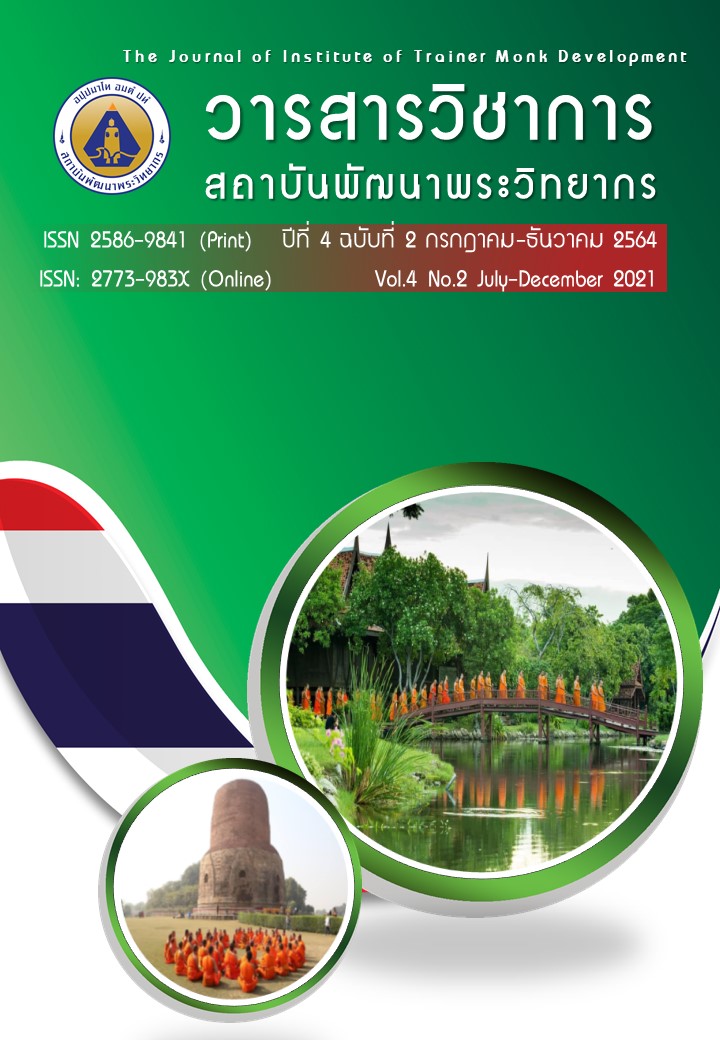The competency of the government sector in supporting the elderly: Case study of the elderly in Than To District, Yala Province
Main Article Content
Abstract
The objectives of this research were: 1) to study problems in the elderly's lifestyle, 2) to study the needs of the elderly for government support, and 3) to study the problems of the government's competency in supporting the elderly. Use a qualitative research process. Collects data from key informants. Present the results of the study in a descriptive explanation.
The results of the study according to the first objective found that the problems in life of the elderly were divided into 2 aspects: 1) Physical problems, include health problems, problems in daily life, and problems in life and property safety 2. Mental problems, include future worries, fears or concerns about the safety of life and property, and family problems.
The results of the study according to The second objective found that the needs of the elderly for government support were of two aspects: 1) personal factors, include needs for income, health, and knowledge and skills in occupation 2) Social needs include the need for the government to support the integration and networking, Infrastructure development in community, and creating peace within the community.
The results of the study according to The Third objective found that problems in the government's competency in supporting the elderly, include 1) inadequacy, thoroughness and fairness in support 2) Untruthfulness from the government in supporting 3) structural and rules problems in support 4) discontinuity of support 5) problems in understanding of sensitivity and real community needs
Article Details
บทความที่ได้รับการตีพิมพ์เป็นลิขสิทธิ์ของวารสารวิชาการสถาบันพัฒนาพระวิทยากร
ข้อความที่ปรากฎอยู่ในบทความที่ได้รับการตีพิมพ์ในวารสาร ถือเป็นความรับผิดชอบของผู้เขียนบทความ และข้อคิดเห็นนั้นไม่ถือว่าเป็นทัศนะและความรับผิดชอบของกองบรรณาธิการวารสารวิชาการสถาบันพัฒนาพระวิทยากร
References
ขนิษฐา นาคะ. (2542). วิถีชีวิตและการดูแลตนเองของผู้สูงอายุในหมู่บ้านชนบทแห่งหนึ่งในภาคใต้. วิทยานิพนธ์ปริญญาดุษฎีบัณฑิต มหาวิทยาลัยมหิดล.
จงจิตต์ ฤทธิรงค์ และคณะ. (2560). ปัญหาและความเสี่ยงในการถูกละเมิดสิทธิและประเมินสถานการณ์เพื่อพิทักษ์สิทธิของผู้สูงอายุ. สถาบันวิจัยประชากรและสังคม มหาวิทยาลัยมหิดล.
ฉมานันท์ แก้วอินต๊ะ. (2554). การนำแผนผู้สูงอายุแห่งชาติฉบับที่ 2 (พ.ศ.2545-2564) ฉบับปรับปรุงครั้งที่ 1 พ.ศ. 2552 ไปปฏิบัติ : กรณีศึกษา อำเภอเวียงสา จังหวัดน่าน. วิทยานิพนธ์ปริญญามหาบัณฑิตสถาบันบัณฑิตพัฒนบริหารศาสตร์.
ถาวร สกุลพาณิชย์ และคณะ. (2559). การศึกษาแนวทางการจัดสวัสดิการสังคมที่เหมาะสมของประเทศไทย. นนทบุรี : สำนักงานวิจัยเพื่อการพัฒนาหลักประกันสุขภาพไทย สถาบันวิจัยระบบสาธารณสุข.
เพ็ญจันทร์ ประดับมุข-เชอร์เรอร์ และคณะ. (2557). รายงานวิจัย โครงข่ายการคุ้มครองทางสังคม: การสร้างภูมิคุ้มกันภัยทางสังคมให้แก่ผู้สูงอาย. ภาควิชาสังคมและสุขภาพ คณะสังคมศาสตร์และมนุษยศาสตร์ มหาวิทยาลัยมหิดล.
มูลนิธิสถาบันวิจัยและพัฒนาผู้สูงอายุไทย. (2560). รายงานสถานการณ์ผู้สูงอายุไทยปี2560. ค้นเมื่อวันที่ 1 สิงหาคม 2564, จาก http://resource.thaihealth.or.th/library/musthave/16626.
วิพรรณ ประจวบเหมาะ และคณะ. (2556). รายงานการศึกษา โครงการติดตามและประเมินผลการดำเนินงานตามแผนผู้สูงอายุแห่งชาติฉบับที่ 2 (พ.ศ. 2545 -2564) ระยะที่ 2 (พ.ศ.2550-2554). วิทยาลัยประชากรศาสตร์ จุฬาลงกรณ์มหาวิทยาลัย
วิสาขา ภู่จินดา และคณะ. (2560). การพัฒนารูปแบบการจัดการสิ่งแวดล้อมโดยผู้สูงอายุในพื้นที่ชนบทของประเทศไทย. สำนักวิจัย และคณะบริหารการพัฒนาสิ่งแวดล้อมสถาบันบัณฑิต
พัฒนบริหารศาสตร์. สุดารัตน์ สุดสมบูรณ์. (2557). สวัสดิการสังคมของผู้สูงอายุในประเทศไทย. วารสารเทคโนโลยีภาคใต้. 1(7): 73-82.
สำนักงานเลขาธิการสภาผู้แทนราษฎร. (2558). วาระปฏิรูปที่ ๓๐ : การปฏิรูประบบเพื่อรองรับสังคมสูงวัย. กรุงเทพฯ : สำนักการพิมพ์ สำนักงานเลขาธิการสภาผู้แทนราษฎร.


